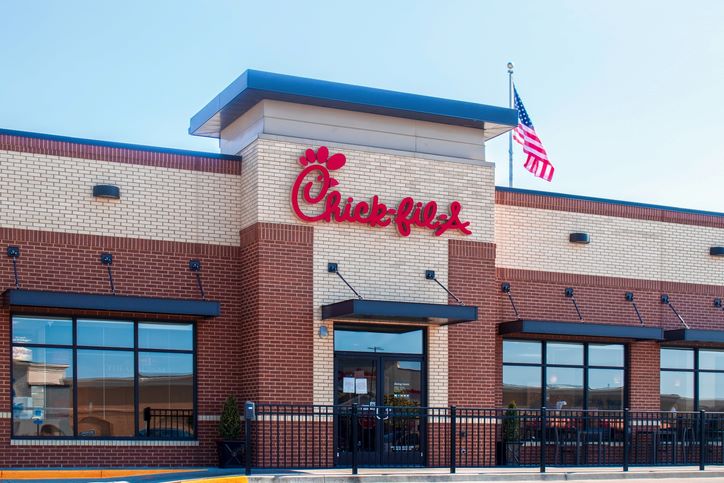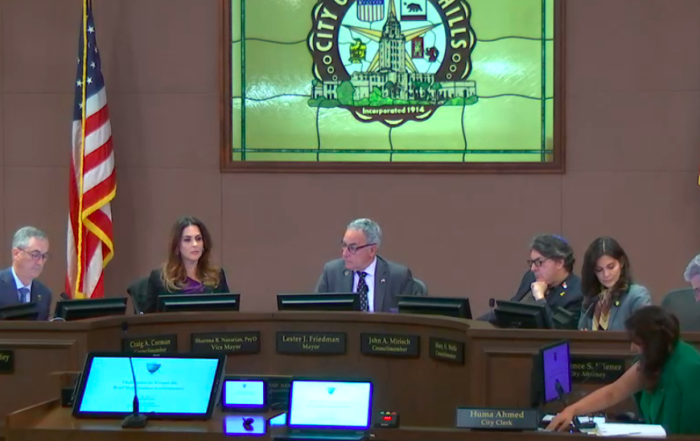Starting April 1, 2024, all fast-food restaurants in California are required to pay their employees $20 an hour.
Citing the increase in inflation resulting in a cut to employee’s hours and spending power, Governor Gavin Newsom signed the increase into law on September 28, 2023.
The wage increase not only benefits restaurant employees but healthcare workers too. Senate Bill (SB) 525 raises the minimum wage for healthcare professionals to $23 per hour by June 2024. The law applies to nursing assistants, medical technicians, and janitors. The minimum wage will rise by one dollar for the next two years until the base wage reaches $25 per hour.
According to online data reports, the average salary for a CEO in L.A. is $1.4 million annually, and an average employee makes $34,000 annually. With surging prices in rent, utility bills, and other living expenses, residents of L.A. are struggling to make ends meet even at $16 an hour. A nuanced approach that includes fair labor practices and progressive taxation is imperative to ensure sustainable financial well-being for everyone. Average employees should be treated fairly while also making more income that not only covers their living expenses but also earning enough to save for rainy days. It is important to note that CEOs enjoy substantial time off and generate substantial earnings due to favorable tax structures, while average employees work extensively, contend with lesser compensation, and face heavier tax burdens.
We asked fast food and healthcare employees about their thoughts on the minimum wage increase in California. Here’s what a few of them said:
“I am so relieved to know that I will be getting paid more. Groceries feel like a luxury to me, so I save myself a few bucks and eat at work, and there goes my phone bill,” Alexa Sanchez said. She works at Wendy’s.
“Being in the healthcare industry is definitely not the easiest, but it is always rewarding in the end. I feel like I do a lot and I don’t get paid for everything I do. I routinely work 12-hour shifts and after taxes, I’m left with just enough to pay my rent, so this feels like prayers being answered,” said a nurse at a local hospital who asked not to be named.
“This is a relief. I’m so happy. I’ll get to pay my bills and have something to myself. I can think about my future now. I’ve been putting masters school behind me for so long – I almost thought it was unnecessary because of how costly it can be. But now, it’ll probably be the reason why I can succeed in what I love to do, which is to become a Neuropsychologist,” said Sarah, who works at Chick-fil-A.
The increase seeks to address the critical issue of wage stagnation and California’s higher cost of living. The testimonies from employees demonstrate the real-world advantages and satisfaction over what this wage boost will bring to their lives. However, there remains something obvious and troubling here. If you listen to what these workers said, you can see that even with the increase, they will still be scraping by to pay for basic necessities – with almost nothing left to save. It remains a struggle to pay their dues at work, on time, and balance a worry-free life.
The minimum wage increase extends beyond individual paychecks – it represents a step toward a more equitable society. The discussion now switches to how firms and employees will adjust to this new reality. Will it improve job satisfaction and productivity, or will there be unanticipated consequences like reduced labor hours, or having employees work overtime as both cooks and cashiers to avoid hiring additional workers?
Fast food management has implemented a cross-training method to prepare current employees to work flexibly as both cashiers and cooks. In April, those who demonstrate proficiency in both roles will retain their current work schedules and hours, while those who do not will experience reduced hours. These testimonies demonstrate how people – like Sarah from Chick-fil-A – have put their lives on hold due to persistent financial burdens, forgetting that this is not the end goal. No one should view groceries as a luxury or have to decide between paying a utility bill or feeding themselves.
Even the Republican Party admits that 62 percent of Americans report living paycheck to paycheck. Though, given the source, we naturally wouldn’t be surprised if it were much higher.
Social security helps keep 26 million people out of poverty but at a cost. If the wealthy don’t start paying their fair share in taxes, the funds are expected to run short in several years. The Social Security Trustees predict the program will only be able to provide full benefits until 2033. After that, Social Security – without changes – will only be able to pay out approximately 77 percent of current benefits.
Research shows that if we pay workers a living wage, it won’t just benefit them, but businesses and society too. According to Fast Company, offering employees a living wage grants businesses a stronger operational environment. It secures worker retention because employees would be motivated, leading to a more positive atmosphere. Employees would be satisfied, promoting innovation and stronger business development.
Living wages provide a practical way to improve supply chain transparency while fostering a positive social impact. Beyond the ethical imperative, businesses will benefit from reduced expenditures linked to labor-related difficulties, thereby reinforcing the symbiotic relationship between equitable compensation, corporate success, and social well-being for all.
Former U.S. Secretary of Labor Robert Reich has been actively addressing the topic of income inequality and unfair taxation for decades. In a social media post, Reich shed light on the disparity, emphasizing that “Wealthy individuals have access to tax experts who can leverage loopholes in the tax code, allowing them to reduce their tax obligations.”
The widening income gap between U.S. CEOs and their employees is a pressing concern. With CEOs earning 344 times more than their typical employees, this disparity reflects an alarming exploitation of labor. This growing inequality has dire consequences, potentially leading to diminished social mobility, increased poverty, and heightened social tensions. All stakeholders must take action to address this issue and work towards a more equitable distribution of wealth, or oligarchy is on the way to the U.S.
The minimum wage increase is a positive step forward but not a panacea. It is essential to continue the conversation about how to build a more equal society that provides a living wage for all workers. This includes the rich paying their fair share of taxes and supporting other measures that promote economic fairness.
Businesses that pay their employees a decent wage can benefit from greater productivity, employee retention, and a healthy work environment. Several restaurants today in L.A. suffer from one-star reviews because their current wages are leaving many locations understaffed – unable to attract workers. We can’t rest at an increased minimum wage. The fight must continue for stronger worker well-being and a society that truly strives for economic justice and equity for all.
Photo by Susan Vineyard on iStockphoto.com
Stay informed. Sign up for The Westside Voice Newsletter
By clicking submit, you agree to share your email address with Westside Voice. We do not sell or share your information with anyone.








